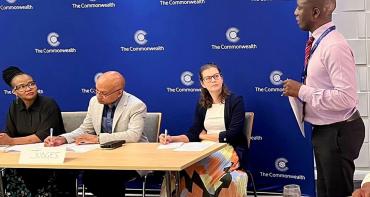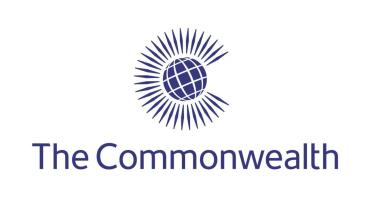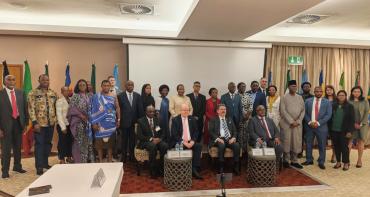Interim Statement

The Commonwealth Observer Group has been present in Zambia since 13 September 2011. During this period we met with the Electoral Commission of Zambia (ECZ), representatives of political parties, civil society, media, Commonwealth High Commissions as well as other international and national observers. Commonwealth teams were based in each of the nine Provinces. Our teams observed the voting, counting and results aggregation and also met with electoral officials, national and international observers and other stakeholders at the constituency level in order to build a larger picture regarding the conduct of the electoral process.
The results process is ongoing. This interim statement reflects the observations and assessments of the Commonwealth Observer Group on the electoral process up to this point. We will issue a Final Report at a later stage, containing our final conclusions on the entire process.
Key Findings
· The 20 September 2011 elections in Zambia were the country’s 5th multi-party elections and despite some shortcomings represent further progress for the country in strengthening its democratic processes. Up to this point, and with some aspects of the process continuing, many of the benchmarks for democratic elections have been met, even though some shortcomings do remain to be addressed for the future.
· The elections were highly competitive, in terms of the number of parties as well as the number of candidates. There were 10 presidential candidates and 769 candidates from 20 political parties for the National Assembly elections. The democratic principles of participation and representation as well as the basic freedoms of association, assembly and movement were largely met. However, the Group noted with regret a decrease in the number of women candidates for the National Assembly elections even though women account for more than 50 per cent of the electorate and the population.
· The election campaign was generally peaceful. However, some incidents were reported, often involving clashes mainly between supporters of the two largest parties.
· During the 2006 elections it was found that state resources were misused by the ruling party for campaign purposes. This trend has continued in 2011 and has remained a source of concern. Furthermore, the power of incumbency was exercised in a manner that compromised the level playing field between the competing candidates and parties.
· Media coverage of the elections is another area of concern mirroring past elections. The state-owned broadcaster, the Zambia National Broadcasting Corporation (ZNBC) did not meet its obligations to treat candidates of all political parties equally; indeed, its television channel gave the incumbent President and the ruling Movement for Multi-Party Democracy (MMD) substantially more coverage than the other parties. At the same time, the leading private print media, The Post, was overtly biased in favour of the main opposition party, Patriotic Front (PF). The concern here is not only that the provisions in the Code of Conduct relating to a requirement for fair and balanced coverage are not adhered to or enforced, but also that some press reports were quite inflammatory and coupled with party rhetoric, served to heighten tension and mistrust throughout the election.
· The Electoral Code of Conduct is a good innovation and sets out the responsibilities of stakeholders in the election process. However, not all stakeholders adhered to its provisions and the ECZ was ill-equipped to ensure adequate enforcement.
· The ECZ was well prepared for the election and managed the process well. Materials were procured and distributed in good time and staff recruited and trained for their respective duties. In addition, ECZ’s updating and cleaning of the voter registers improved the level of voter participation.
· On the day of the election, voting proceeded generally well across the country. Commonwealth Teams reported that the process was well managed and people were free to express their will. The secrecy of vote was guaranteed. There were delays in some areas, resulting in frustration for some voters and there was tension in a couple of areas, such as Kanyama in Lusaka, but this was not characteristic of the national experience. Generally, voters waited calmly and patiently to cast their ballots and poll officials worked extremely hard to administer the process, which was closely monitored by large numbers of party agents and domestic observers, adding to the high level of transparency.
· Commonwealth teams followed the count at polling stations, which was also highly transparent, with local observers and party agents playing their role too. The tabulation and results processes are on-going and we will reflect more on these in our Final Report. We are aware that at this point some results have been announced and also that there has been tension in a couple of areas.
At this crucial stage of the process, the Commonwealth Observer Group urges all Zambians to continue to exercise patience and to allow the ECZ to conclude its work creditably. We also call on them, in case of any complaints, to avail themselves of avenues provided for in the Electoral Act for seeking legal redress. For the ECZ, it is paramount that the high level of transparency achieved thus far is maintained during the results process in order to ensure accountability and to maintain confidence.
Election Campaign
Political parties, particularly the larger ones, held numerous rallies and meetings across the country. The regulatory framework for the campaign is set out in the Code of Conduct. It prohibits, among other things, use of intimidating or provocative language and the use of state resources for campaign purposes (save for the President and Vice-President). However, there are no rules on campaign funding, no spending limits and no requirements to report on campaign expenditure, thus foreclosing the obligation for accountability and transparency in this regard. This must be addressed for future elections.
During the campaign there were reports of clashes between party supporters, notably between those of the ruling MMD and the opposition PF. It was also reported state resources were used by the ruling MMD, including the use of state vehicles to transport party stalwarts to rallies. The requirement in the Electoral Act and the Electoral Code of Conduct for all print and electronic media to “provide fair and balanced reporting of the campaign, policies, meetings , rallies and press conferences of all registered political parties and candidates during election campaigning” was not fulfilled. On the whole, media practitioners fell short of ethical standards of fair electoral reporting. It is imperative that ways of overcoming these challenges are urgently explored.
Women make up more than 50% of the population and registered electorate but the level of women’s representation as candidates is discouraging, well below the targets set by both SADC and the Commonwealth. Out of the ten Presidential candidates only one was a woman and out of the 769 candidates for the National Assembly a disappointing 14% were women.
Electoral Framework and Management of the Electoral Process
The ECZ was well prepared for the elections, ensuring that materials were procured in good time and that staff were recruited and trained well. There were some concerns expressed regarding the choice of a foreign company to print ballot materials. The major opposition parties had expressed preference for the printing to be done in-country. However, the ECZ took measures to protect the integrity of the printing process through an inclusive and transparent process that actively engaged all contesting political parties
The ECZ conducted an update of voter registration, a public verification exercise and a cleaning of the list to reduce the number of erroneous entries. This resulted in the registration of 1.2 million new voters, representing a welcome increase in the participation of younger voters. Overall this signified a notable improvement in the quality of the voter register and meant that universal suffrage was provided for.
The Electoral Code of Conduct provides a framework for conflict resolution through the creation of Conflict Management Centres (CMCs). The CMCs were useful in addressing some infringements and disagreements in the electoral environment but were less effective in addressing more significant issues. More so, decisions of the CMCs are not binding or public, which means there is a lack of accountability and transparency in addressing some complaints.
Voting, Counting and Results
On the day of the election, Commonwealth teams reported from all nine Provinces of the country and we maintained close contacts also with other observer groups. Poll officials worked hard and methodically to process voters, secrecy of the vote was provided for and voters were free to express their will. Voters waited patiently in most cases and the process was followed by a wide range of party agents and domestic observers, who worked in a very constructive manner with polling officials. Security at polling stations was visible and effective but not intrusive, thus making a positive contribution to the process.
There were delays in the start of voting in some areas due to difficulties in delivering materials or some errors in packing materials, but these were soon rectified. There were also some reports of tensions in a couple of areas, notably in Lusaka, but this was not characteristic of the overall experience. In a small number of local council elections there were errors in the ballot paper and so affected Ward elections will have to be held later.
During the vote count, officials again worked hard and in a transparent manner, although in some cases they were slightly less sure of the procedures for the count as opposed to the vote.
Lusaka, 22 September 2011



